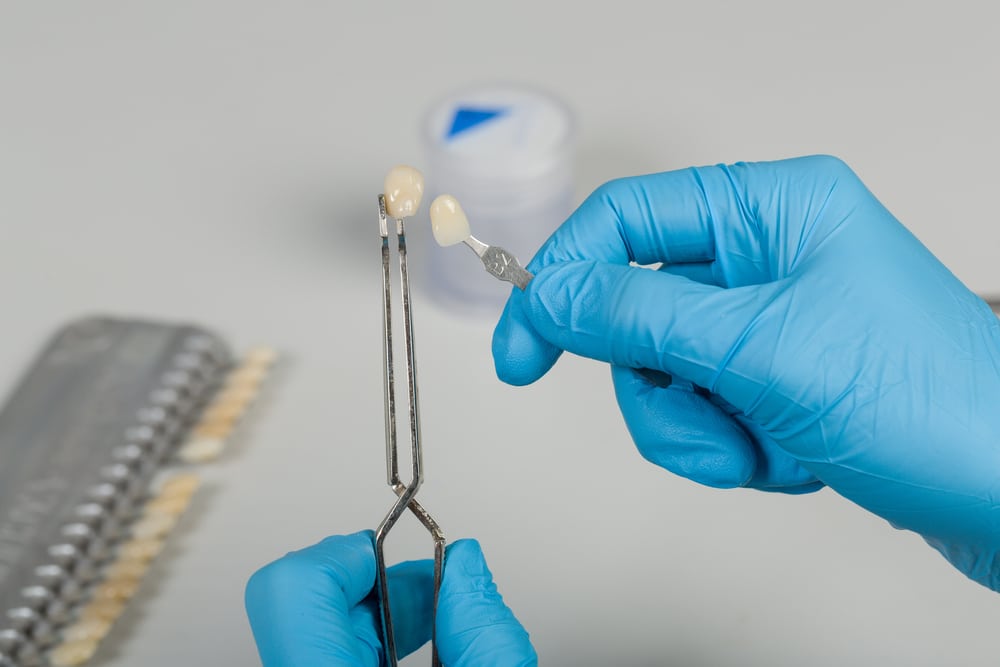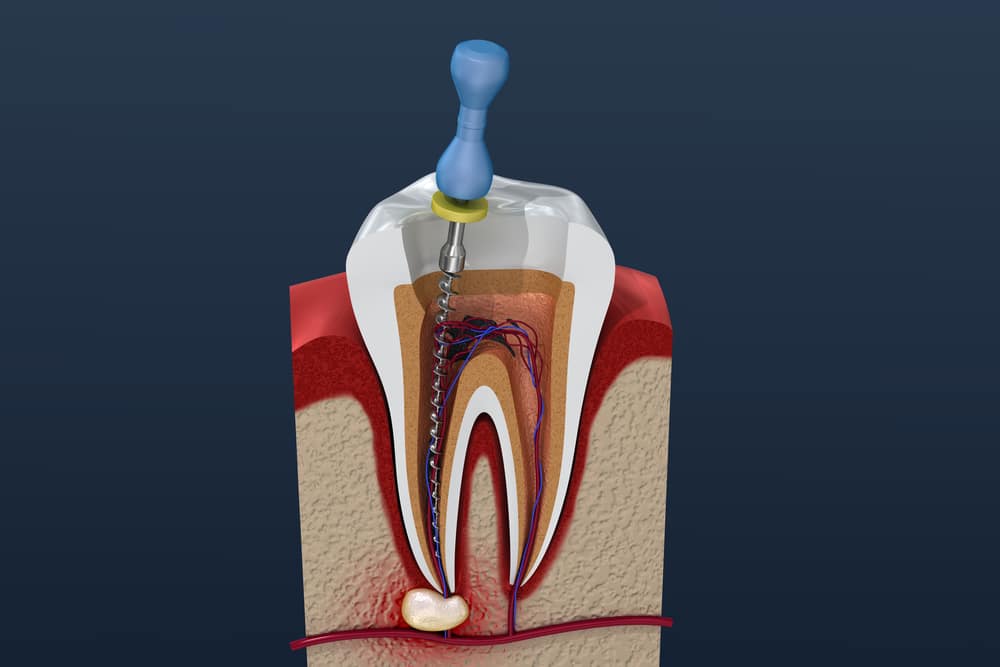Crowns are tooth-shaped caps that are placed over your natural tooth and cemented in place in order to protect your natural tooth and to restore its functionality. They’re commonly associated with root canals – but do you need a root canal in order to get a crown? Can you get a crown without a root canal? Is it possible for an existing crown to have a root canal done on it?
These are all excellent questions. Here’s what you need to know about when a crown will need a root canal, either to have it installed or to have a root canal done on an existing crown, as well as whether all crowns need a root canal. Let’s get into it!
Do You Need A Root Canal In Order To Get A Crown?

Not always! Since dental crowns are made to protect your teeth, there are instances in which you can need a crown without needing to have a root canal done first.
Some of the instances in which you can get a crown include:
- As anchors for dental bridges
- To restore chipped or broken teeth
- To improve the appearance of discolored teeth
Generally, if your tooth has minor damage to it, root canal therapy may be unnecessary and you can have a dental crown put in without it.
Do You Need A Crown When You Get A Root Canal?
More often than not, yes, if you have a root canal done, this means that you will need to have a dental crown placed on the tooth that had the root canal. However, there are cases in which you can have a root canal done without needing a crown. You will need to talk to your endodontist about your specific situation.
Generally, the more damaged your tooth is, the more likely it is that you will need a crown. If the root canal was done on one of your back teeth, you will also more likely need a dental crown. Also, if the tooth that gets a root canal has already been restored, it will likely need a crown.
You typically need a crown when you get a root canal because:
- They strengthen your tooth.
- They prevent infection.
- They protect it.
- They restore a natural look.
Can A Root Canal Be Performed On A Crown?

If you have a crown in your mouth, you may assume that this means your tooth is protected forever. However, crowns need to be cared for and cleaned the same as your natural teeth do in order to prevent decay.
This can lead people to wonder whether or not a tooth that already has a crown on it can need a root canal.
Sometimes, yes. Other times, no.
Root canals can be done on existing crowns if the damage is not too extensive. After the decay has been excavated, the crown would be sealed up, the same as a normal tooth.
However, if the damage is extensive, the crown has been damaged, or further damage to the tooth is discovered during the root canal, then you typically cannot have a root canal performed on a crown. You may need to have the tooth extracted.
Your endodontist will work with you on your specific case in order to inform you of the options available to you. Depending on your circumstances, the options available to you can vary.
Your endodontist will always do everything in their power to save your natural teeth. Extraction should only ever be used as a last resort, because impressive though modern implants and the like are, they’re no match for your natural teeth.
Do You Have Further Questions About Crowns And Root Canals?
If you are considering obtaining a crown, it’s best to consult with your dentist about the options available to you. They will go over why you want or need a crown and what your options are. In some cases, you may need a root canal first.

If this is so, your dentist can refer you to an endodontist, like David G. Johnson, DDS. We perform root canals regularly. While pop culture may have built up this idea of root canals being this excruciatingly painful procedure, the reality is that with modern advancements, they’re quite similar to having a cavity filled, just with more recovery time.
To request an appointment, please do not hesitate to contact us today. We have offices in both Layton and in Centerville, so that we can better serve you.


